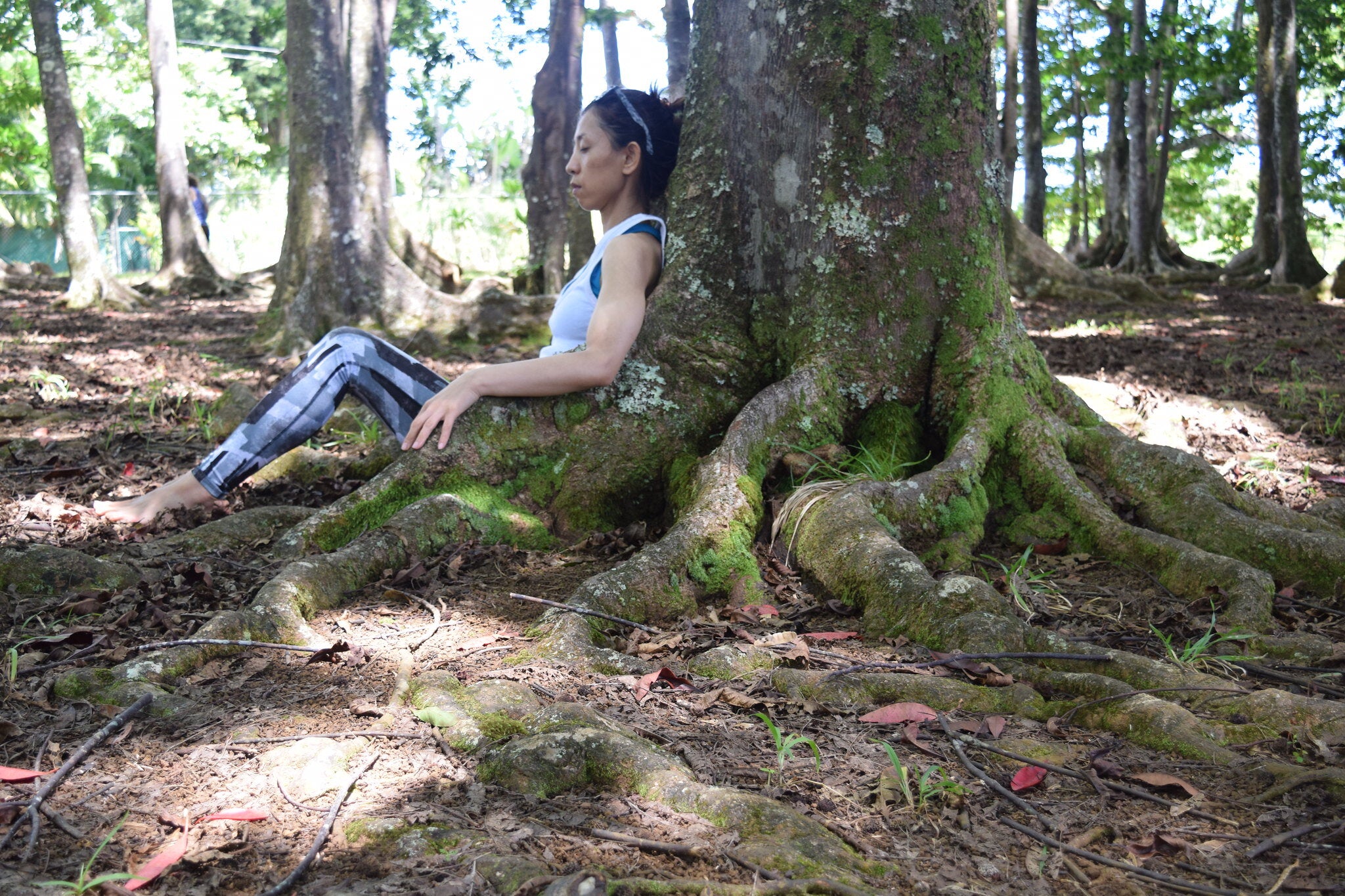
A man came to stay with us at the urging of his wife, who is a regular guest. He was used to a diet of meat, spicy foods and alcohol and a busy lifestyle filled with things to do and see. After just a week of taking part in morning practices, meals of Ayurvedic food, and being surrounded by the natural world, he said with surprise that he felt 10 years younger.
The recovery that is possible through Ayurveda and Yoga is remarkable. As our guest found, making simple adjustments in what we eat, how we live and where we put our focus is enough to make a person find a new experience of being alive. Often times we do little more than remove what is getting in the way of health and inner peace. This allows us to use the senses wisely and start a journey to true health.
Learning to manage the senses
While the senses are rarely talked about in Western medicine, the texts of Yoga and Ayurveda share the value of using them wisely. Doing so allows for powerful healing and a new way to relate to life.
The five senses of taste, touch, smell, sight, hearing are gifts to us. They are here to serve us so that we can experience life. But life is not limited to the earthly plane. When we misuse the senses, we believe that what we take in through these experiences is all that matters.
Far too many people define their lives through attachment to sense objects (meaning, things we take in through the senses, such as food or sounds). But there is more to life than eating decadent food or watching violent thrilling television shows. In fact, when you turn away from disruptive experiences, life expands beyond what you had thought it was. When the senses are in check, life is simpler and more joyful because you have cleared the way to experience yourself more deeply as eternal spirit.
Disease and the misuse of the senses
Misuse of the senses (called asatmya-indriyartha-samyog) is one of the main causes of disease. Misuse can be from overuse, underuse or wrong use. For example, we can overuse the sense of taste by overeating in one sitting or eating too often, but it is just as damaging to deny ourselves food or use it to control life, such as in anorexia.
When the senses go unchecked, they drag us around in life. If you have ever had a moment where you wanted to say “no” but your senses demanded you say “yes,” you experienced your senses taking over your decisions. As a result, you may act compulsively, taking in harmful foods and experiences, which leads to dosha imbalance and ama (toxins). As you grow more disconnected from yourself as eternal spirit, life becomes an exhausting search for fulfillment outside. Loud music, chemically-created fragrances, misuse of sexual energy and browsing social media all day draw your attention outward and have you forget your true nature. This is the direction of disease and disharmony, but the Yoga practices of pratyahara are the remedy.
Pratyahara: Withdrawing the senses
Pratyahara, or the withdrawal of the senses, is how you can take back the control over external desires and put your senses in their right and useful place.
To withdraw the senses doesn’t mean that you must live in a cave. It simply means that you practice viveka, discretion. Pratyahara asks you to slow down and examine your decision-making process. Why are you reaching for that sugary food? Why are you drawn toward having sex with someone? Before you jump in, pause and ask yourself if it is you or your senses making the decision.
Tools to cultivate pratyahara
Few of us have ever learned to manage our senses, so we go through life led around by their urges. As a result, most people are overwhelmed with stimulation on all levels. But you have the choice to change that at any time.
Meditation is one of the best tools to cultivate pratyahara because sitting down to meditate requires you to draw your senses inward. Meditating, even for a few minutes each day, plants the seed of pratyahara inside you. It trains your mind and senses to turn inward and become a tool for your connection to spirit to grow.
You can learn to practice pratyahara outside of meditation by using your senses in pleasant, balanced ways that point you in the direction of sattva, balance and harmony. This allows you to be in your body without exploiting it. For instance, reduce the number of senses you are using at any given time (in other words, avoid multitasking). When you do use them, do so with awareness. When you are eating, focus on tasting your food and chewing it thoroughly. Avoid reading or watching television during meals, or limit conversation and see how that feels. Avoid playing music during Yoga asana and use an eye pillow and a blanket over your ears during savasana. When you touch people and objects, do it with care -- even the act of closing a door gently can cultivate sattva with your senses.
Connecting with your higher self through pratyahara
The more you practice pratyahara, the more you will see that your experience of being alive goes far beyond what the sense organs can take in. By turning away from the distractions of sense objects and toward your inner world, you become aware that you are a spirit in a body. Each glimpse you get of your true nature will turn you further away from the sense objects that used to capture your mind. As you develop a new, more freeing relationship with your senses, you’ll see that the senses are here to serve you, not the other way around.
